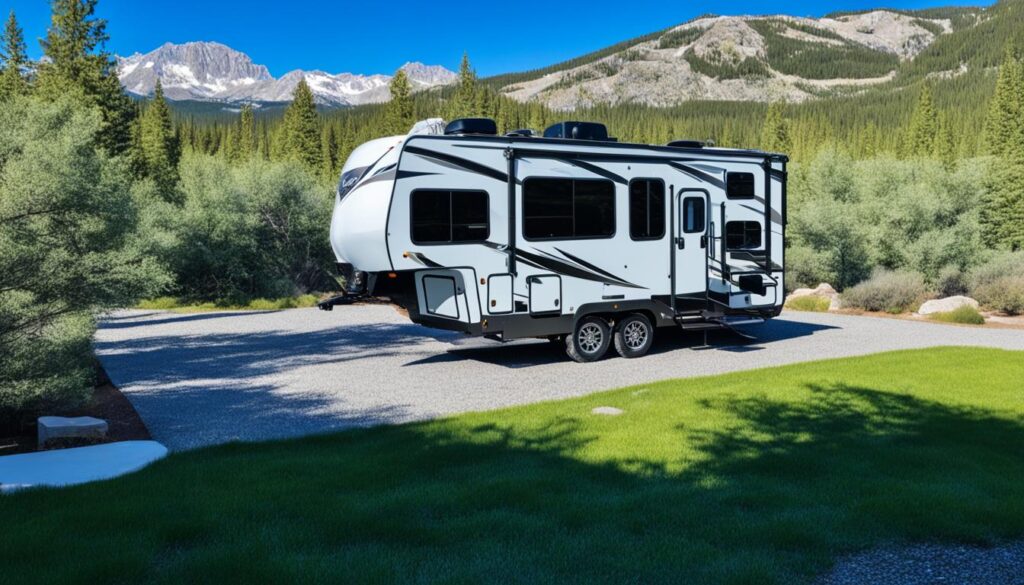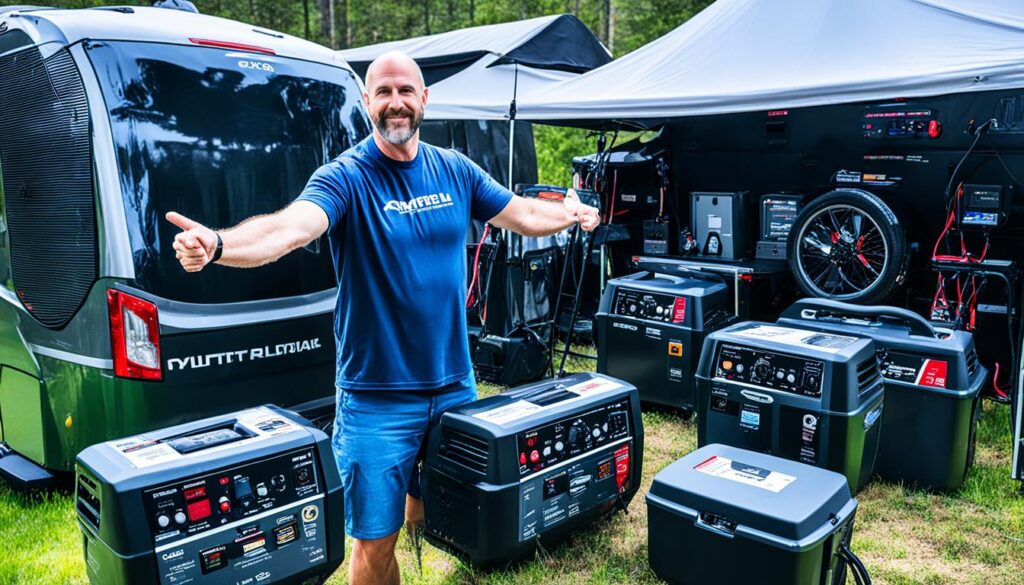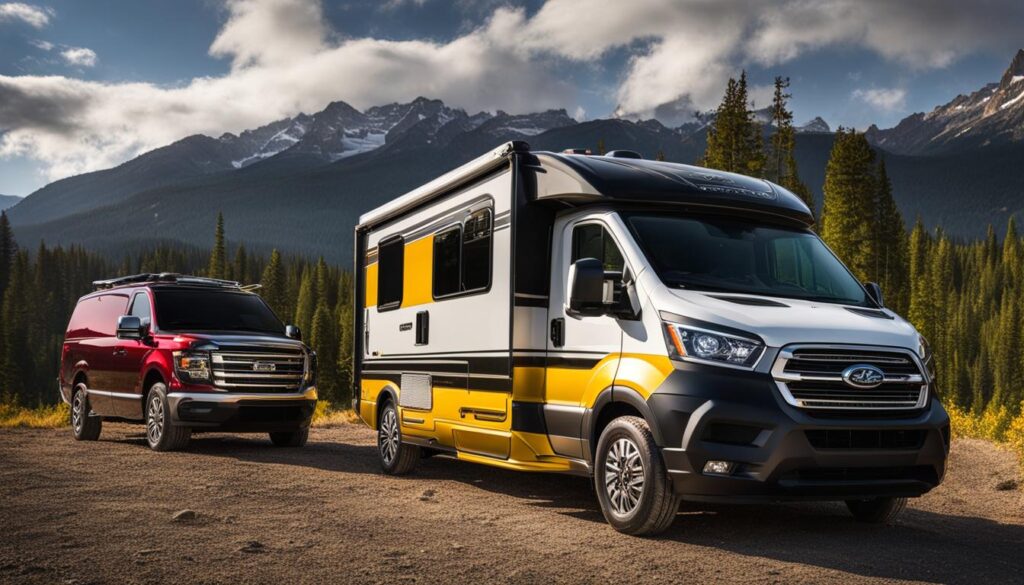Are you wondering how long you can rely on your RV generator to keep your power flowing during your outdoor adventures? Whether you’re camping in remote locations or experiencing a power outage, understanding the runtime of an RV generator is crucial for planning and optimization. So, how long can you run an RV generator, and what factors can affect its runtime?
In this article, we’ll delve into the details of RV generator runtime, exploring the maximum runtime for an RV generator, factors that affect it, and practical tips to extend its lifespan. Whether you’re a seasoned RV enthusiast or new to the world of motorhome living, this article will provide you with valuable insights to make the most of your generator’s capabilities.
Contents
Types of RV Generators and Their Run Times
When it comes to RV generators, there are two main types to consider: built-in generators and portable generators. Each type offers its own unique benefits and considerations, including differences in runtime. Let’s take a closer look at these options to help you determine the best fit for your needs.
Built-In Generators
Built-in generators, as the name suggests, are permanently installed in your RV and are typically powered by the vehicle’s battery. These generators offer the advantage of convenience and ease of use, as they can be started with the push of a button. They are also connected to the RV’s fuel tank, allowing them to draw fuel directly. This means that as long as you have fuel in your tank, you can continue to enjoy uninterrupted power.
Portable Generators
Portable generators, on the other hand, are standalone units that are located outside the RV. They have their own fuel source, usually gasoline or propane, and are easily transportable. While portable generators offer flexibility in terms of mobility, their runtime is typically limited by their fuel capacity. Depending on the size and fuel efficiency of the generator, you can expect a runtime of approximately 8-13 hours of continuous power.
It’s important to consider your specific needs and usage patterns when deciding between a built-in generator or a portable generator. Built-in generators provide extended runtime and convenience, making them ideal for long trips or situations where uninterrupted power is essential. Portable generators, on the other hand, offer flexibility and portability, making them great for shorter trips or situations where mobility is a priority.
Now that you have a better understanding of the different types of RV generators and their run times, you can make an informed decision based on your specific requirements. Whether you choose a built-in generator or a portable generator, ensuring regular maintenance and proper usage will help maximize their lifespan and performance.
Safety and Operating Tips for RV Generators
When it comes to operating your RV generator, safety should always be a top priority. Not only does proper operation help prevent accidents, but it also ensures the longevity of your generator. Here are some essential tips to follow for safe and efficient operation:
1. Safe Operation of RV Generator
Always familiarize yourself with the user manual and safety guidelines provided by the manufacturer. This will help you understand the specific operational requirements and precautions for your RV generator.
“It is crucial to read and understand the user manual before operating the generator. Following the manufacturer’s guidelines will help ensure safe use and prevent any potential damage to the generator or yourself,” emphasizes Mark Johnson, an RV enthusiast.
2. Proper Ventilation for RV Generator
One of the most critical aspects of RV generator safety is ensuring proper ventilation. Generators produce exhaust fumes that contain carbon monoxide, a deadly gas. It is essential to have sufficient airflow to prevent these fumes from accumulating inside the RV.

“Proper ventilation is crucial for the safe operation of your RV generator. Always ensure that the generator is installed in an area with proper airflow to avoid the risk of carbon monoxide poisoning,” advises Lisa Rodriguez, an experienced RVer.
3. Fueling RV Generator
When fueling your RV generator, take precautions to avoid spills and potential fire hazards. Use approved fuel containers and follow the manufacturer’s guidelines for fuel type, capacity, and filling procedures. Be sure to turn the generator off before refueling and allow it to cool down.
4. Maintenance of RV Generator
Regular maintenance is crucial for preventing damage to your RV generator and ensuring its optimal performance. This includes routine tasks such as oil changes, filter replacements, and inspections of fuel lines and connections. Consult the user manual for recommended maintenance schedules and procedures.
“Proper maintenance is key to extending the lifespan of your RV generator. Regular oil changes and filter replacements help keep the generator running smoothly and prevent costly repairs down the line,” suggests Chris Thompson, an RV expert.
5. Preventing Damage to RV Generator
To prevent damage to your RV generator, avoid overloading it by exceeding its wattage capacity. Ensure that the appliances you connect to the generator do not draw more power than it can handle. Following the generator’s operational limits and guidelines will help prevent overheating and potential damage.
By following these safety and operating tips, you can ensure the safe and efficient operation of your RV generator and prolong its lifespan. Remember, a well-maintained and properly operated generator will provide you with reliable power during your RV adventures.
Factors Affecting RV Generator Runtime
Several factors can significantly impact the runtime of an RV generator. It’s essential to consider these factors when choosing a generator and planning for extended use. The key factors that affect RV generator runtime are:
1. Wattage of Appliances
The wattage of the appliances being powered is a crucial consideration. Appliances with higher wattage requirements will consume more power, reducing the overall runtime of the generator. It’s important to carefully calculate the combined wattage of all appliances to ensure the generator can meet the power demands.
2. Fuel Capacity and Type
The fuel capacity of the generator directly influences its runtime. Larger fuel tanks can hold more fuel, allowing the generator to run for a more extended period before needing to be refueled. Additionally, the type of fuel used can affect runtime as different fuel types have varying energy densities and burn rates.
3. Generator Size
The size of the generator is another critical factor. Generators with higher power output capabilities usually have larger engines and fuel tanks, enabling longer runtime. It’s important to select a generator size that aligns with your power needs to ensure optimal runtime.
4. Battery Capacity
The battery capacity of the RV plays a role in determining generator runtime. A larger battery capacity can provide supplemental power, reducing the reliance on the generator and extending its runtime. Using a battery bank in conjunction with the generator can help maximize overall runtime.
5. Duration of Generator Usage
The duration of generator usage within a given period impacts the overall runtime. Continuous usage of the generator will deplete the fuel quickly, while intermittent usage allows for longer periods between refueling. It’s important to manage generator usage effectively to optimize its runtime.
In conclusion, when selecting an RV generator, it’s crucial to consider the wattage of appliances, fuel capacity and type, generator size, battery capacity, and duration of generator usage. These factors play a significant role in determining the overall runtime of the generator. By carefully considering these factors and planning accordingly, you can ensure that your RV generator provides reliable power for all your needs.
Extending RV Generator Runtime
If you want to make the most out of your RV generator and prolong its runtime, there are several strategies you can implement. By optimizing your energy usage and ensuring proper maintenance, you can extend the time between refueling or relying on alternative power sources.
1. Energy-Efficient Appliances
Consider equipping your RV with energy-efficient appliances to reduce overall power consumption. Look for appliances with an Energy Star rating, which indicates their energy efficiency. Energy-efficient appliances not only save electricity but also put less strain on your generator, allowing it to run for longer periods without refueling.
2. Proper Insulation
Investing in proper insulation for your RV can help regulate interior temperature and reduce the workload on your generator. Good insulation helps retain heat during the winter and keeps the interior cool in the summer. This reduces the need for excessive heating or cooling, resulting in lower power consumption and longer generator runtime.
3. Battery Bank and Solar Panels
An effective way to extend your RV generator runtime is by setting up a battery bank and installing solar panels. A battery bank stores excess energy generated by the generator or from external power sources, such as solar panels. This stored energy can be used to power your RV when the generator is not needed, effectively lengthening the runtime of the generator. Solar panels provide a renewable and sustainable energy source that can recharge the battery bank and reduce your reliance on the generator.
4. Reducing Power Consumption
Reducing overall power consumption is key to extending your RV generator runtime. Simple actions such as turning off lights and appliances when not in use, unplugging devices, and using energy-efficient LED bulbs can significantly lower your power requirements. By being mindful of your energy usage, you can conserve power, reduce generator runtime, and save on fuel costs.
5. Generator Maintenance
Regular maintenance is crucial to ensure your RV generator operates efficiently and lasts longer. Routine maintenance tasks include oil changes, filter replacements, and cleaning the generator to remove dust and debris. By following the manufacturer’s maintenance guidelines, you can optimize the performance of your generator and prevent any potential issues that may shorten its lifespan.
Implementing these strategies can help you maximize the runtime of your RV generator and minimize your reliance on fuel. Whether it’s using energy-efficient appliances, ensuring proper insulation, utilizing battery banks and solar panels, or reducing power consumption, these steps will optimize your overall energy usage. Additionally, regular generator maintenance will keep your power source running smoothly and efficiently for years to come.
| Strategies | Benefits |
|---|---|
| Energy-Efficient Appliances | Reduced power consumption and less strain on generator |
| Proper Insulation | Improved temperature regulation and reduced workload on generator |
| Battery Bank and Solar Panels | Stored energy for extended runtime and reduced reliance on the generator |
| Reducing Power Consumption | Lower overall energy requirements and decreased generator runtime |
| Generator Maintenance | Optimized performance and prolonged lifespan of the generator |
Choosing the Right RV Generator for Your Needs
When it comes to selecting an RV generator, several factors should be taken into consideration to ensure it meets your specific requirements. These factors include the size of the generator, wattage requirements of your appliances, fuel type, noise level, and budget. By carefully evaluating these aspects, you can make an informed decision and choose a generator that best suits your needs.
Generator Size: One of the essential factors to consider is the size of the generator. The size should be determined based on the total wattage requirements of your appliances. Calculate the wattage needed for all the appliances you intend to power simultaneously to ensure that the generator can handle the load without overloading.
Wattage Requirements: Appliances have specific wattage requirements that determine how much power they consume. Make a list of the appliances you plan to use and their wattage ratings. This list will help you determine the total wattage requirements and ensure that the generator you choose can handle the load.
Fuel Type: Another consideration is the fuel type for the generator. Common options include gasoline, propane, and diesel. Each fuel type has its advantages and disadvantages, such as availability and cost. Choose the fuel type that aligns with your preferences and accessibility.
Noise Level: Noise level can be a significant concern for many RV owners. If you prefer a quieter experience, consider generators with lower decibel levels. Inverter generators are known for their quiet operation and are a popular choice for RV enthusiasts.
Budget: Determining your budget for an RV generator is crucial. Set a realistic budget based on your financial capabilities, and compare prices and features before making a final decision. Remember, a higher price does not always guarantee the best performance, so evaluate the generator’s capabilities and features in relation to its cost.
Generator Comparison
| Generator Model | Generator Size (Watts) | Fuel Type | Noise Level (Decibels) | Price Range |
|---|---|---|---|---|
| Brand A RV Generator | 3500 | Gasoline | 70 | $500-$700 |
| Brand B RV Generator | 3000 | Propane | 65 | $600-$800 |
| Brand C RV Generator | 4500 | Diesel | 75 | $900-$1200 |
Refer to the table above for a comparison of different generator models. It provides information on generator size, fuel type, noise level, and price range. This data can serve as a starting point to help you make an informed decision based on your specific needs and budget.
Choosing the right RV generator is crucial for ensuring a reliable power supply during your travels. Consider the size, wattage requirements, fuel type, noise level, and budget to make the best choice. By selecting a generator that meets your needs, you can enjoy a comfortable and worry-free camping experience.

Lifespan and Maintenance of RV Generators
The lifespan of an RV generator can vary depending on several factors. The quality of the generator, the type of fuel used, and the frequency of maintenance all play a role in determining how long your generator will last.
On average, portable generators have a lifespan of 10,000 to 25,000 hours, while built-in generators can last between 15,000 and 20,000 hours.
To ensure the longevity of your RV generator, regular maintenance is essential. This includes performing oil changes and filter replacements at the recommended intervals. Regular maintenance not only keeps your generator running smoothly but also helps prevent costly repairs down the line.
When it comes to the lifespan of your RV generator, the fuel quality and frequency of use are also important factors to consider. Using high-quality fuel not only improves the efficiency of your generator but also reduces the risk of damage caused by low-grade fuel.
Proper ventilation and storage are vital for maintaining the performance and lifespan of your RV generator. Adequate ventilation prevents overheating and allows for the dissipation of exhaust fumes. Storing your generator in a dry and clean environment protects it from moisture and corrosion.
Remember, a well-maintained generator is a reliable power source for your RV adventures. By taking proper care of your generator and addressing any issues promptly, you can enjoy worry-free travels and maximize the lifespan of your RV generator.
Maintenance Checklist for Your RV Generator
- Perform regular oil changes according to the manufacturer’s recommendations.
- Replace the filters (air, fuel, and oil) at the specified intervals.
- Inspect and clean the spark plug periodically.
- Check the fuel lines and connections for any leaks or damage.
- Inspect the generator’s enclosure for signs of wear or damage.
- Keep the generator clean and free from debris.
- Ensure proper ventilation during operation.
- Store the generator in a dry and clean area when not in use.
By following this maintenance checklist, you can keep your RV generator in excellent condition and extend its lifespan for years to come.
| Lifespan (hours) | |
|---|---|
| Portable Generators | 10,000 – 25,000 |
| Built-in Generators | 15,000 – 20,000 |
Note: These lifespan ranges are approximate and can vary depending on various factors.
Conclusion
Investing in a reliable and properly sized RV generator is essential for ensuring a consistent and sufficient power supply during your outdoor adventures. Whether you choose a built-in generator or a portable one, understanding the factors that affect runtime is crucial for optimizing its performance and maximizing its lifespan.
By following recommended maintenance procedures, such as regular oil changes and filter replacements, you can keep your RV generator running smoothly. It is also important to consider the fuel type and capacity, wattage requirements of your appliances, and the duration of generator usage when selecting the right generator for your needs.
Additionally, practicing safe operation, proper ventilation, and reducing power consumption can help extend the runtime of your RV generator. By doing so, you can enjoy the convenience and independence provided by your generator for years to come, allowing you to fully embrace the RV lifestyle without worries.
FAQ
How long can you run an RV generator?
The runtime of an RV generator can vary depending on factors such as the type of generator, fuel capacity, wattage, and the appliances being powered.
What are the types of RV generators and their run times?
There are two main types of RV generators: built-in generators and portable generators. Built-in generators can run nonstop for days with proper maintenance, while portable generators typically provide 8-13 hours of continuous power.
How can I operate an RV generator safely?
It is important to properly ventilate the generator to prevent exhaust fumes from entering the RV, follow fueling procedures to avoid spills and flammability risks, and perform regular maintenance such as oil changes and filter replacements.
What factors can affect the runtime of an RV generator?
The wattage of appliances, fuel capacity, fuel type, generator size, battery capacity, and duration of generator usage can all impact the runtime of an RV generator.
How can I extend the runtime of an RV generator?
You can extend the runtime of an RV generator by using energy-efficient appliances, properly insulating the RV, installing a battery bank and solar panels, reducing power consumption, and performing regular generator maintenance.
How do I choose the right RV generator for my needs?
When selecting an RV generator, consider factors such as the generator size, wattage requirements of your appliances, fuel type, noise level, and budget.
What is the lifespan of an RV generator and how do I maintain it?
The lifespan of an RV generator depends on factors such as the quality of the generator, fuel type used, and frequency of maintenance. Portable generators typically last 10,000 to 25,000 hours, while built-in generators can last 15,000 to 20,000 hours with regular maintenance.






